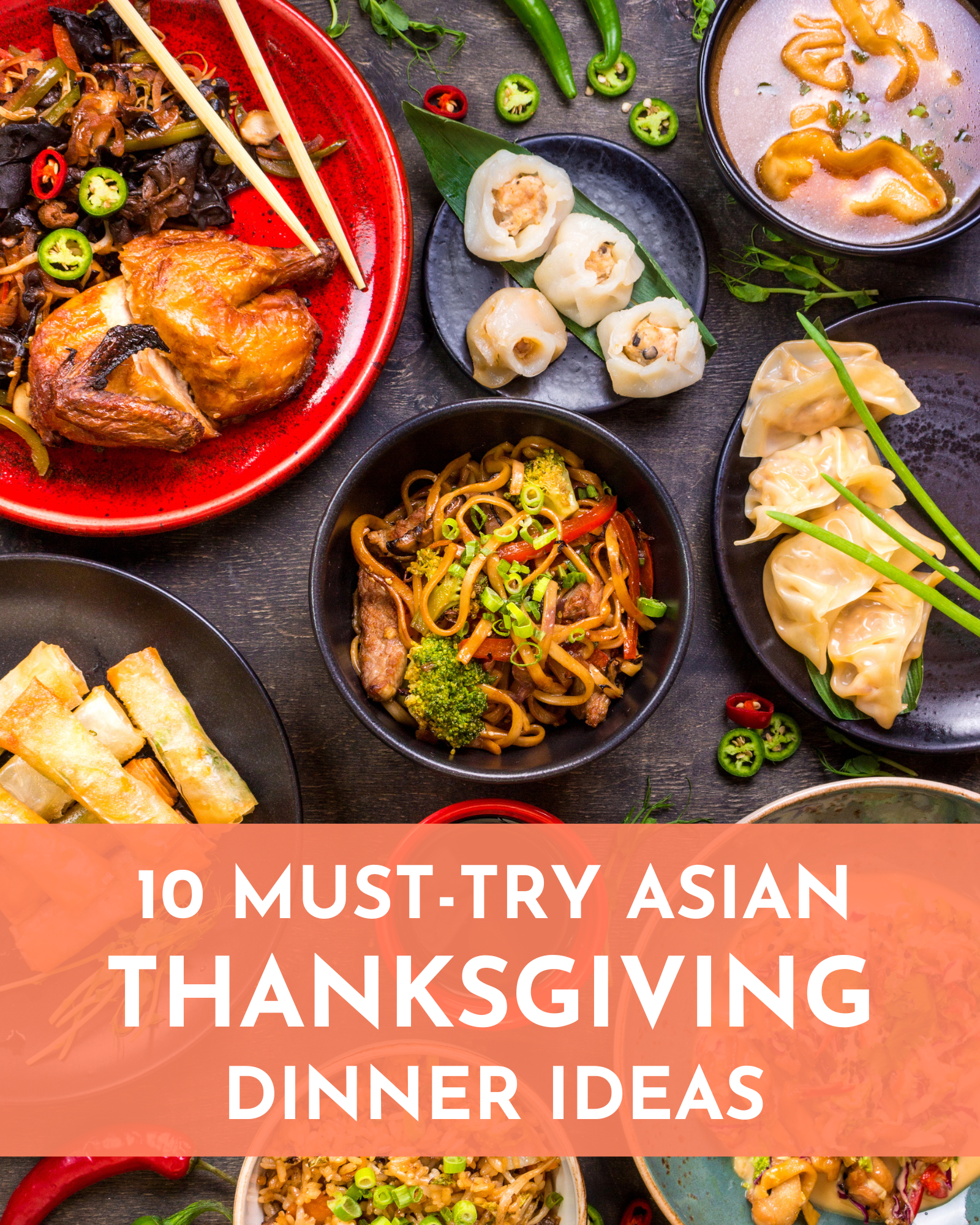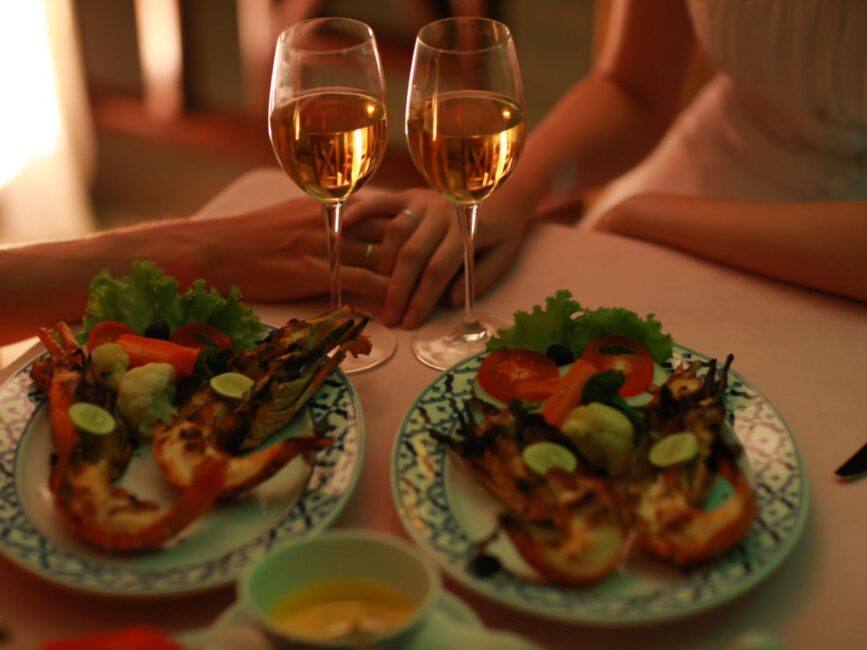Do you feel that palpable buzz in the air as Chinese New Year approaches? I get especially excited about all the delicious food I’m about to dive in and swim through. (Picture me as Scrooge McDuck, wading through my sea of gold coins. Except… it’s piles of spring rolls and Osmanthus Jelly). Many of these foods generally symbolize good fortune and prosperity. But wait! Before you jump right into the Lunar New Year celebration, you’ll should be aware of what’s *off* the menu. Yes, Chinese superstitions warn of certain foods that are VERY taboo for the holiday.
“But it’s just food,” you’re thinking. Not in Chinese culture. Your culinary choices during this time can influence your luck for the entire year, and you’ll want to avoid certain meals that might bring about bad luck or scare off all the good things you’ve been hoping for this year.
So, today, we’re exploring 12 foods on the Chinese New Year’s Do-Not-Eat list to make sure you keep your happy new year happy. But first… let’s clear up some common Chinese New Year misconceptions.
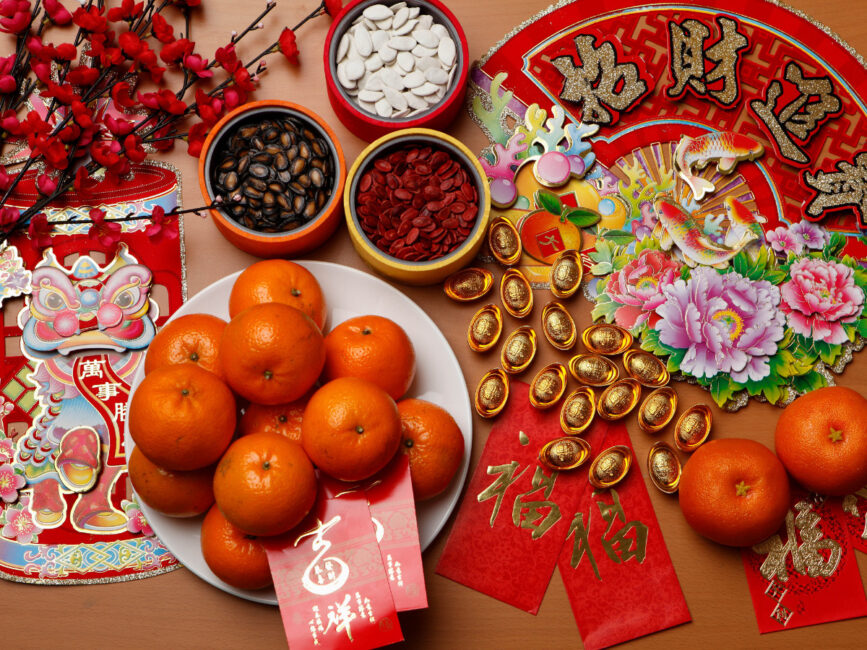
Common Myths and Misconceptions About Chinese New Year
❌All Chinese People Celebrate the Same Way: You’ve seen one Chinese New Year celebration, you’ve seen them all, right? Wrong. From Beijing to Singapore, each place has its own spin on the festival. Dumplings up north, sweet rice balls down south, dragon dances here, lanterns there. The holiday’s diversity is as vast as the country itself.
❌The Date of Chinese New Year is Fixed: New Year’s on January 1st, right? Not so fast. Chinese New Year is actually kind of a moving target, thanks to the lunar calendar. It can fall anywhere between late January and late February.
❌Chinese New Year is Only Celebrated in China: Sure, it’s big in China, but the party doesn’t stop at the border. This festival has gone global, and is celebrated wherever you find larger Chinese communities. Heck, it’s even been embraced by other Asian cultures. It truly is a worldwide phenomenon.
❌Gifting Red Envelopes is Only About Money: Gifting a red envelope might seem like a straightforward cash transaction, but there’s more to it. Red envelopes with cash inside are carriers of good wishes and blessings. The tradition is more about the connection between giver and receiver than the amount inside.
Now, without further ado, let’s get into the
Chinese New Year Do-Not-Eat List
Porridge
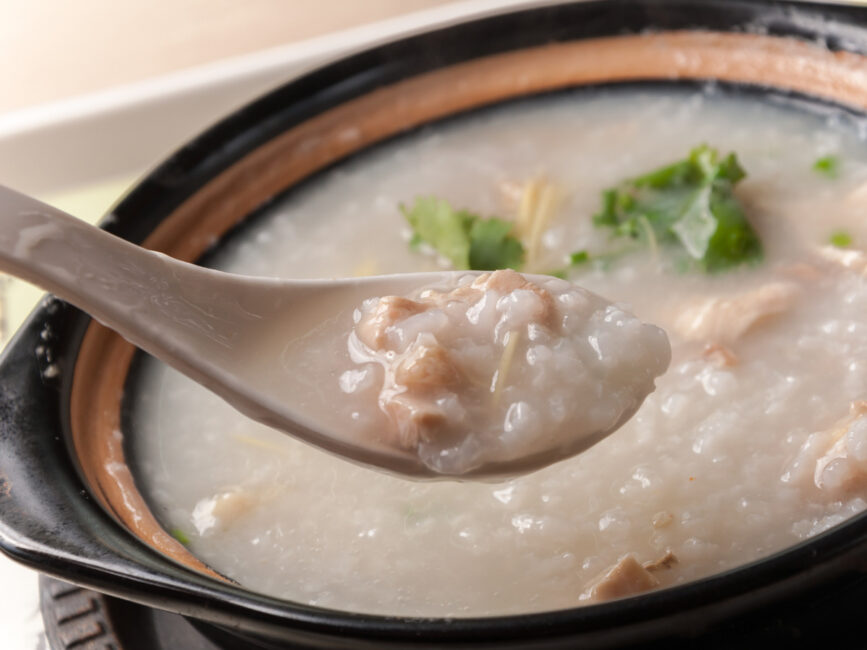
We all know porridge—yup, like congee—is warm and comforting and just about the perfect food for winter mornings. But in Chinese culture, starting your day with porridge during the Spring Festival is a HUGE no-no. It’s believed that porridge symbolizes poverty or a poor lifestyle. And let’s be honest, nobody wants to invite that vibe in for the coming year. So, let’s just save the congee for regular days and keep it off the New Year menu.
White Foods
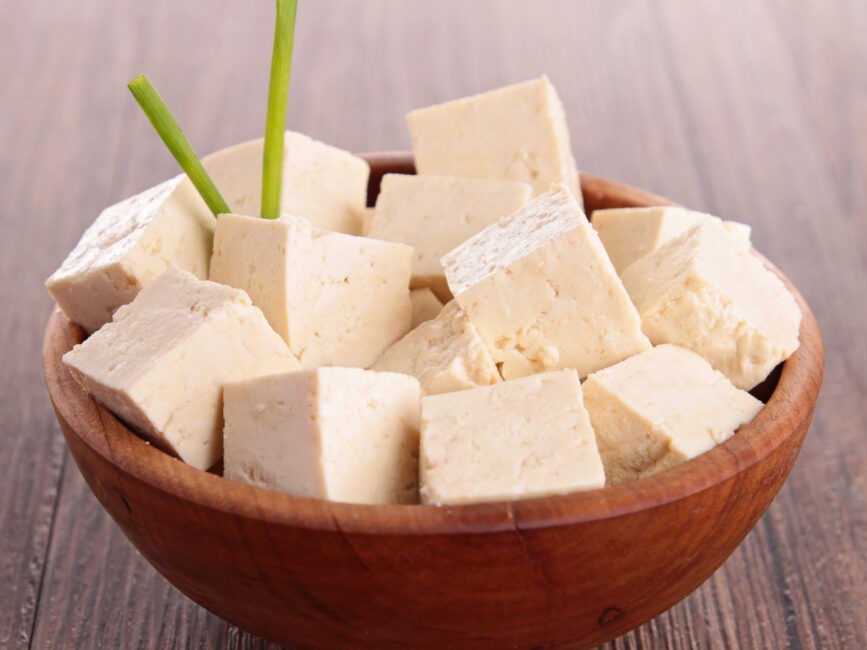
Next up are white foods. Tofu, eggs, some kinds of cheese, you name it. In many Chinese communities, white is often associated with mourning, the opposite of what we want for the start of the a new year. While red envelopes and decorations are all about good fortune and prosperity, eating white foods are seen as inviting death into the home. So make sure to swap that block of tofu for something a bit more colorful, just to play it safe.
Lobster

Lobster might be a delicacy any other time of the year, but not during Chinese New Year. That’s because lobsters move backward, and in many Asian cultures, this can symbolize setbacks or backpedaling in life. If you want to invite progress and growth into the new year and keep your festive season moving in the right direction, leave these ocean critters for the other holidays, and opt for things that swim forward, like salmon, tuna or any other whole fish.
Chicken
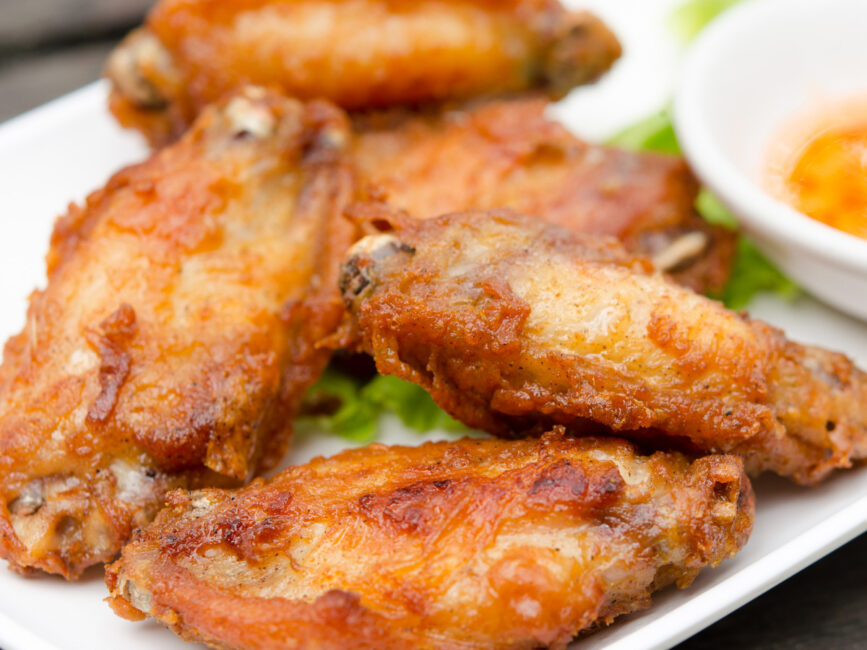
Chicken, a staple of many a holiday dish. But according to Chinese New Year superstitions, chickens scratch backwards, and that’s metaphor for dwelling on the past, or worse, struggling to make ends meet. In fact, many winged fowl are considered part of Chinese New Year taboos, the thought being that it might allow your luck to fly away from you. (Though, some Chinese people counteract this by enjoying whole chicken, feet, head and all! Superstitions vary wildly.) You want to strut confidently into the new year, not scratch around in the dirt for your fortune, right? If so, then let the chicken (and the turkey and maybe even the duck) sit this one out and opt for something that symbolizes progress, like Nian Gao.
Pears

Pears are tricky. They’re sweet and juicy, but they also carry a bit of a cultural taboo. In Chinese, the word for ‘pear’ (lí) sounds a lot like ‘leave’ or ‘departure.’ Handing someone a pear during the days of the New Year is like hinting at a goodbye, the wrong kind of vibe for bringing family members closer together. So, this year, skip the pears and opt for citrus fruits instead. They’re a much safer bet for harmony and togetherness.
Short or Broken Noodles
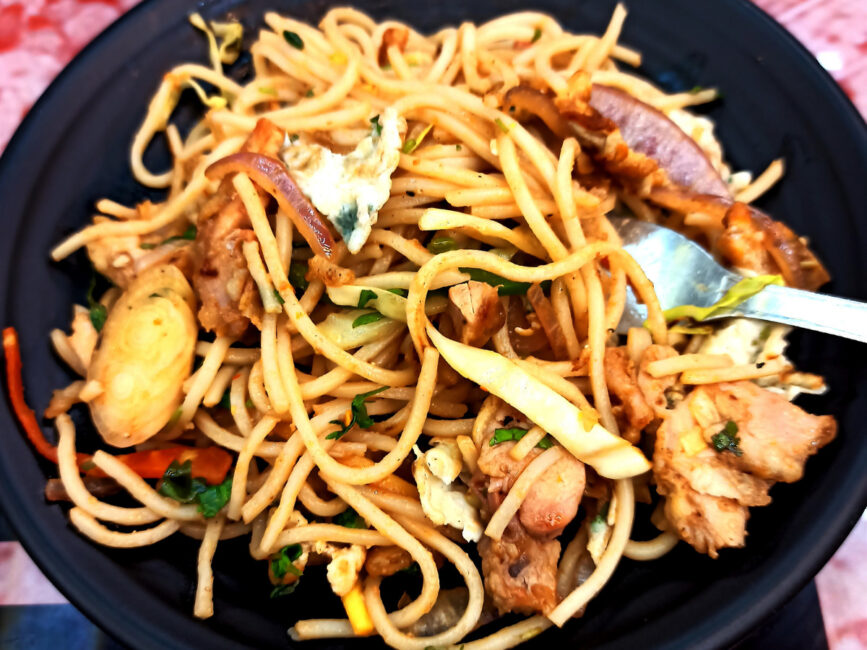
Next up, let’s talk noodles, but not the short or broken kind, which are considered a very unlucky food. During Chinese New Year celebrations, long noodles symbolize a long life, hence the popularity of “longevity noodles” around this time of year. Short or broken noodles imply a life cut short or interrupted fortune. So, stick with the long, slurp-worthy strands if you want to ensure a long, healthy life ahead.
Squid
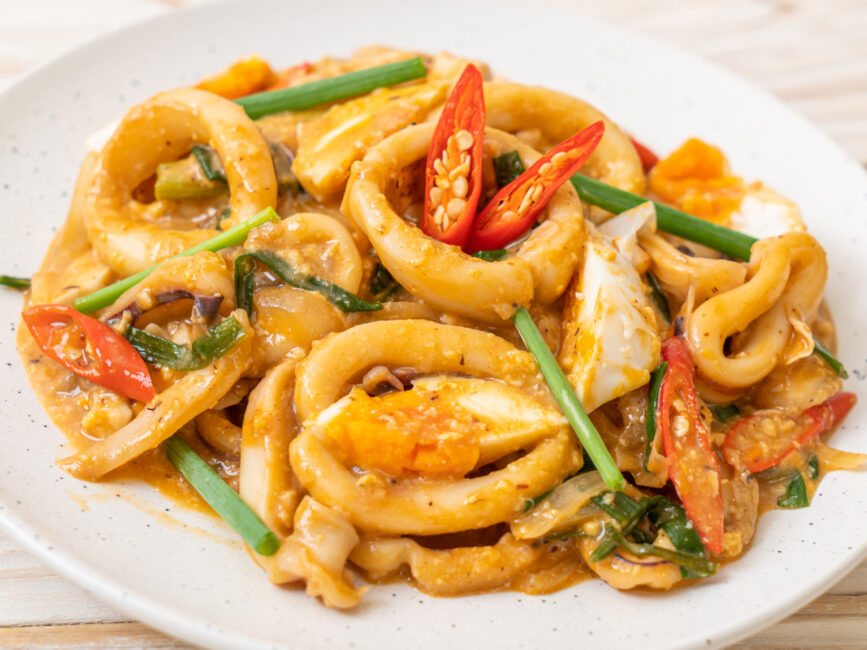
The Cantonese word for squid is “Yow Yu.” In ancient times, workers would have to travel far from home to work, often bringing personal belongings rolled up in a blanket. When someone got fired, they’d be told to “yow”, a nice way to say “roll up your stuff and hit the road”. Serving squid during Chinese New Year is thought to invite the possibility of being fired in the year ahead. Instead, enjoy some spring rolls, which are the “gold bars” of Chinese New Year food.
Shrimp and Other Bottom Feeders
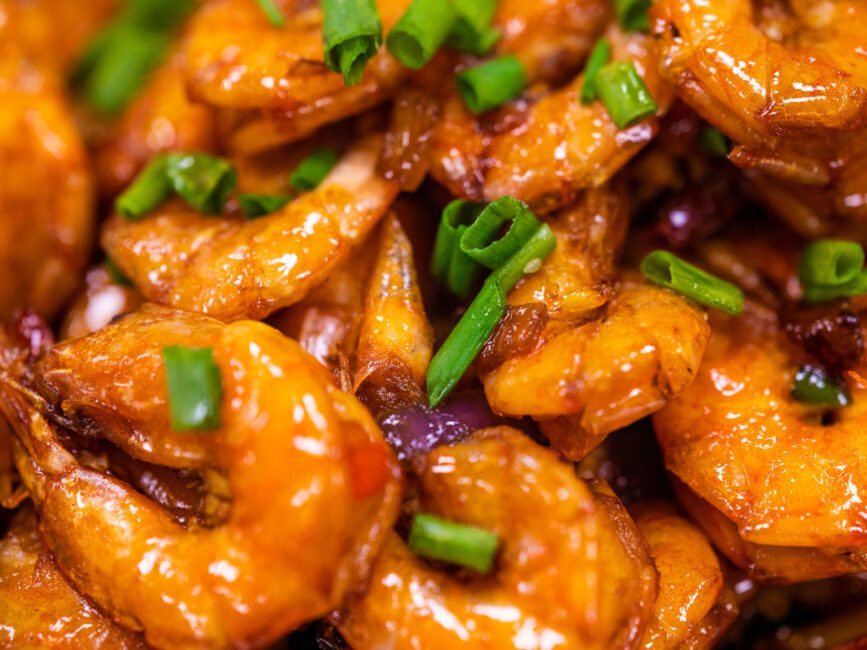
Seafood like shrimp, cod, scallops are all bottom feeders that scavenge along the ocean floor. During the New Year’s festive occasions, eating these generally symbolizes “living off scraps”, and that’s definitely not the energy we want for the new year. So, let’s skip the shrimp cocktails and aim for lucky foods like Tang Yuan or Hong Kong Egg Tarts.
Hollow Bread
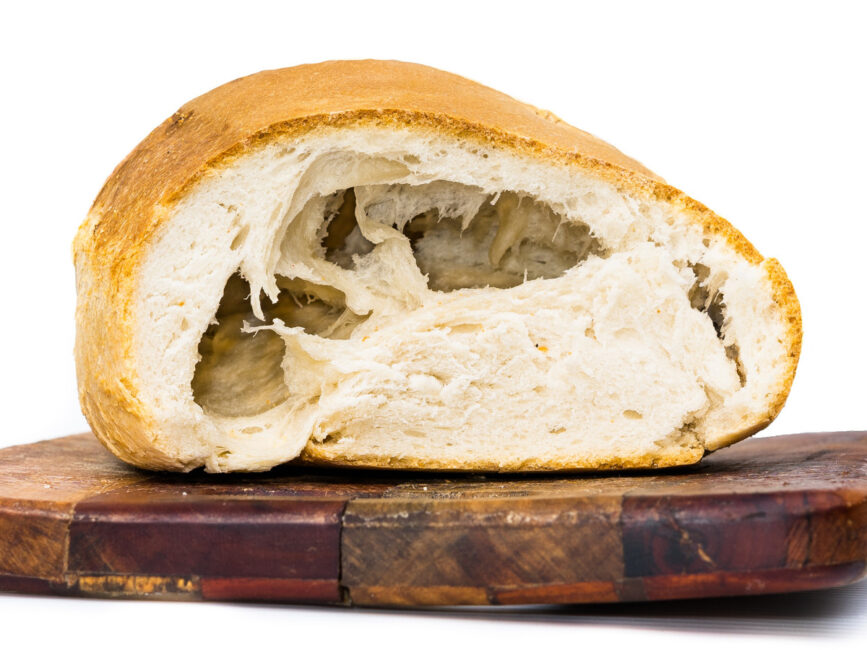
Hollow bread might seem harmless, but during the start of a new year, those empty pockets in the bread are said to symbolize coffins. Yeah, not exactly festive. Some folks make exceptions for round breads, but many opt to skip bread entirely during New Year’s to avoid any risk of bad omens. Stick to the filled buns and pastries to keep the good vibes.
Beef

Beef’s on the unlucky foods list too, and here’s why: cows graze while standing still. As the belief goes, if you’re munching on beef during the Lunar New Year, you might be setting yourself up for a year of going nowhere. Stagnation? No thanks! Pork is the safer bet, as it’s associated with progress and moving forward. Plus, beans and greens cooked with pork are just plain delicious.
Bananas

Bananas should be fine, right? Unfortunately, no, they are not one of our good luck foods. In fact, quite the opposite. Cutting them is said to bring bad luck, and their bunch shape resembles an upturned hand, begging. So if you’re looking to bring prosperity and self-sufficiency into your life this year, maybe swap them out for some mandarin oranges or other lucky fruits.
An Empty Plate

Last Tip: Don’t clean your plate entirely. Leaving a bit of food is actually a good thing. It symbolizes that you have plenty to spare and that the coming year will be just as abundant. So, resist the urge to polish off every last bite, and your future self might thank you.
General Things To Avoid During Chinese New Year
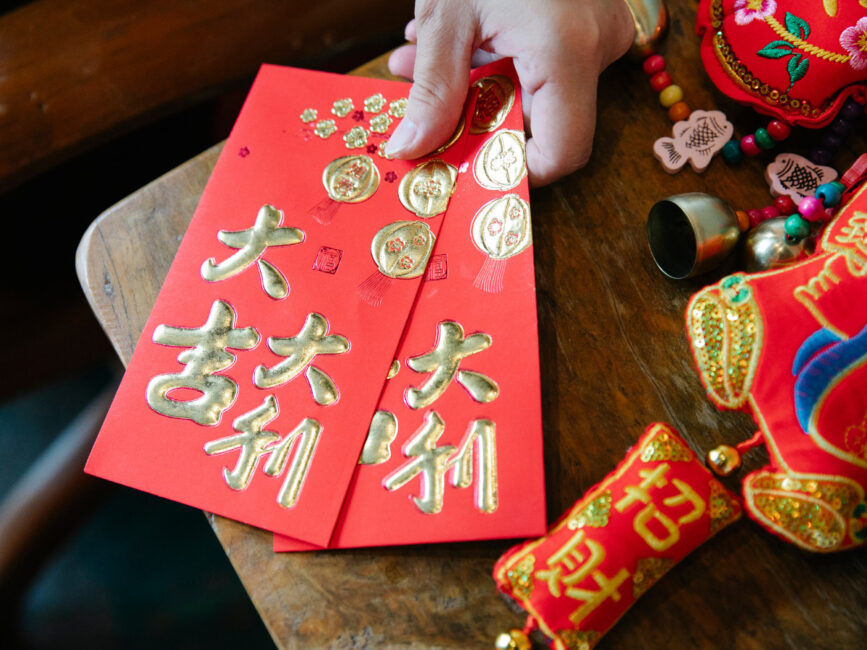
While we’re on the topic of Lunar New Year dos and don’ts, let’s not forget some of the more general taboos. Here are a few more things to avoid to ensure your whole year goes off without a hitch:
- Hair Washing and Haircuts: Hold off on washing that mane on New Year’s Day. In Mandarin, “hair” (发) sounds like “wealth”, so washing your hair is like washing away your fortune. And haircuts are believed to bring bad luck to uncles. So much so, that many barber shops are closed for a whole month!
- Wearing Black or White: These colors are usually reserved for funerals or mourning. Rockin’ them during New Year festivities is inviting misfortune or mourning into your life. Stick to brighter, happier colors.
- Sweeping and Taking Out Garbage: Sweep on New Year’s Day, and you might just sweep your wealth out the door. Same goes for taking out the trash, which is akin to dumping your good fortune. Keep the brooms and bins at rest, at least for the day.
- Crying Children: The cry of a child is believed to bring bad luck to the family. So, parents, let’s keep the kiddos happy and tear-free. No scolding or punishment. Only good vibes all around.
- Passing Knives at the Dinner Table: Want to keep your relationships intact? Don’t pass a knife or gift one. It’s seen as cutting ties with that person, literally and figuratively.
- Grocery Shopping: Make sure your fridge and pantry are well-stocked before New Year’s Day. Starting the year with an empty kitchen is seen as inviting scarcity into your life.
I hope you enjoyed this rundown of unlucky foods and things to avoid this Chinese New Year to keep the bad luck at bay. Remember, while many of these traditions may come from centuries of Chinese superstition, each family is different and what works for them may vary. It’s all part of the rich tapestry of the Lunar New Year celebration.
As you gather around the table with family, decked out in your lucky colors (definitely not black or white!), don’t forget to savor the moment, the company, and the feast (without the no-no foods, of course). May your year be filled with good health, happiness, and a pantry full of good fortune. Happy Chinese New Year, everyone!
Check Out More Chinese New Year Info Here:
- Chinese New Year Recipes + Superstitions
-
Chinese New Year Recipes: What to eat if you want more money!



